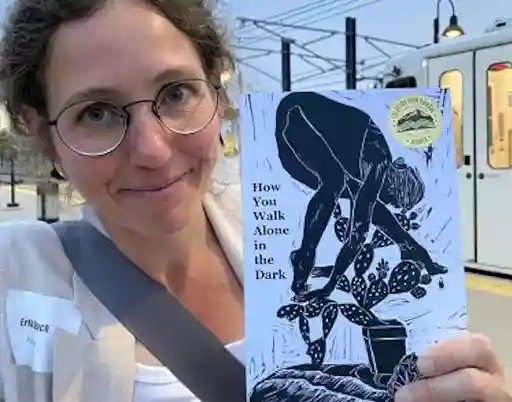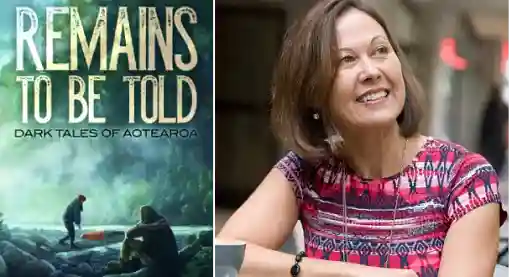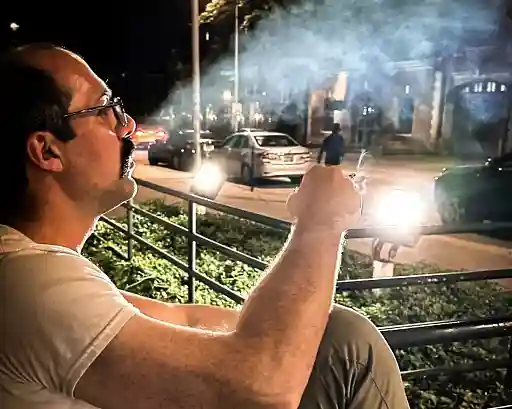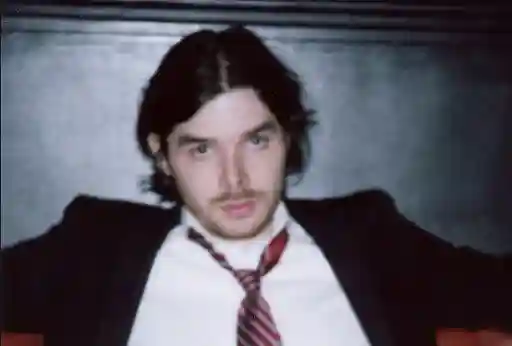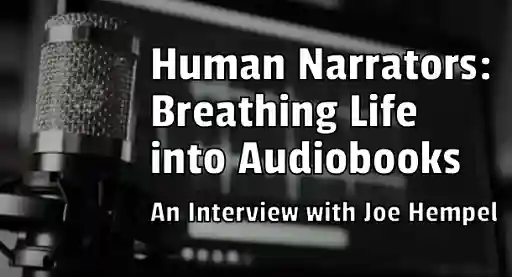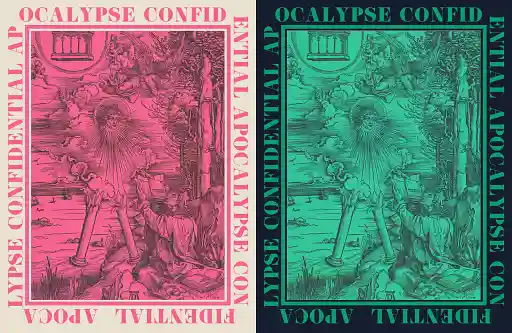Last year I read The Science of Women in Horror and reviewed it for Tor Nightfire. I was incredibly impressed by the amount of research that went into writing that book. This year, The Science of Serial Killers showed up, and as soon as I looked at the Table of Contents I knew I would have to reach out to Meg Hafdahl and Kelly Florence to learn more about the way they go about writing this series. The following is my interview.
Meg and Kelly, thank you so much for agreeing to this interview. It is such a delight to be able to ask you these burning questions I have regarding your career(s) in horror. My first question is about your relationship to each other—How did all of this start? The podcast and the Science Of… series of books?
K: We met over 20 years ago and instantly bonded over our mutual love of The X-Files! We soon discovered that we both loved the genre of horror and have been best friends ever since.
M: Yes! Kelly walked into a shop where I was working and she was wearing an X-Files shirt! Eventually I became a horror fiction author and we wanted to work together on a project, so the Horror Rewind podcast was born. And then this idea of non-fiction horror came to life with our Science Of... series.

Do you two spend a lot of time together outside “work” and “writing”?
K: Unfortunately we live 3 and a half hours away from each other! When we can, we get together as much as possible, and talk daily via FaceTime or Zoom depending on what we’re working on. We also make sure to spend time on fun, non-work activities when together because it can be tempting to work too much.
M: Yeah, we have made it a priority to make certain we are friends first. We carve out time to watch trashy reality TV together. And our kids are best friends so that makes it even more important to make the drive!
How did you choose the topics of interest for the Science Of… series?
K: For our first book, The Science of Monsters, we thought about the major types of horror movie monsters and split up the book by themes. For The Science of Women in Horror we shifted to thinking about the various tropes in horror movies that women fall under.
M: It was important to us to focus on women in the genre as it is a passion of ours to promote representation and diversity. As far as the Stephen King book, Kelly came up with it and I was immediately like “YES!” And I’m kind of the true crime nerd of the two of us, so this most recent one was most definitely my idea!
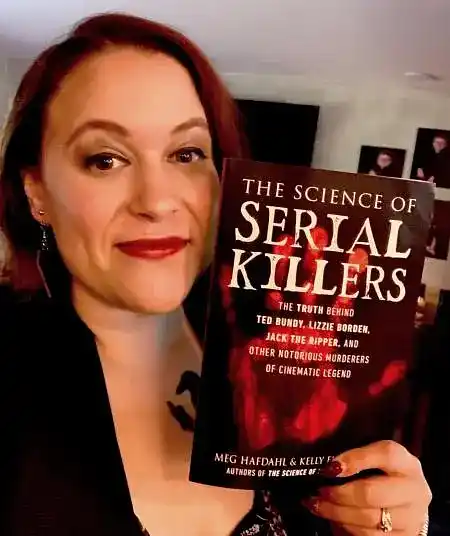 How extensive is the research for a Science Of… book? Like for example, The Science of Serial Killers, I imagine there is an overwhelming amount of information out there, how do you know what to cover? How much is enough? Where do you even start?
How extensive is the research for a Science Of… book? Like for example, The Science of Serial Killers, I imagine there is an overwhelming amount of information out there, how do you know what to cover? How much is enough? Where do you even start?
K: Each chapter could be a book itself! We narrowed down our research to 30 serial killers and pieces of media that explored that person, whether it was a book, television show, or movie. Then we made sure to look at each case through the lens of science.
M: There are so many angles to take, and sometimes I’d go down one road and realize it didn’t feel right so I’d pivot. There is a lot of research involved, but thankfully we both love learning and pulling on those threads of knowledge.
When you’re working on a Science Of… book, how does the division of labor work out? The research, the writing, production, publication, editing, etc. Can you break it down a little bit for us?
K: We’ve learned a lot over the course of five books! When we first started, we worked on every chapter together equally. For the rest, we’ve realized it’s easier to split up the work 50/50 by each researching and writing half the chapters then interviewing and editing together.
M: Either way it takes a lot of communication, so that’s something we’ve worked on. There will be movies or concepts I know for certain I want to do, so I quickly try to claim them! But really we do a lot of planning and as we write we text each other things like “have you done levitation yet?” Or “Did you say you know an aura reader I can interview?”
For fans who love your book series, is there much crossover into programming for your podcast? And maybe a bit of a vice versa question, do topics from your podcast carry over into your books?
K: Our podcast began as a way to reexamine the horror movies from our childhood and see how they lived up to our memories of them. We shifted to talk about more current horror content and definitely talk a bit about the science aspects but don’t spoil our books for listeners.
M: I would say that the podcast has more of our casual, pajamas voice, while the books are maybe us in jeans and a proper blouse? Does that make any sense? We sort of let the conversation flow on the podcast while our books are still approachable and fun but chock full of history, science, philosophy.
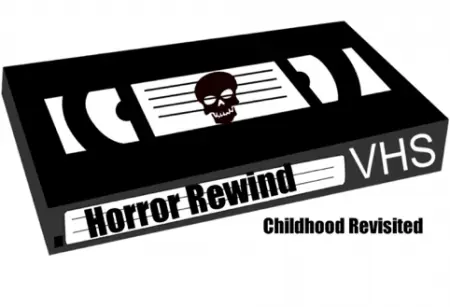
In your opinions, what is the most attractive thing about horror? Why do you two love it so much?
K: The thing that I love most about horror is how it makes me feel. I like to be scared, not in a real-life situation, but by watching a horror movie or reading a scary book. I think horror has had a lot of strong, female characters, like the trope of the Final Girl, and that always appealed to me.
M: Joe Hill said something about horror being about the character’s worst day of their life. I like feeling empathy, putting myself in their shoes, in these insane scenarios. I think horror is emotional while also stretching the confines of how we perceive reality. And yeah, as Kelly mentioned, the female POV makes it all the more fascinating to me.
Both of you write fiction and non-fiction if my information is correct, so my question is: Which do you find more satisfying? Making up your own stories and writing them or learning about real stories and recording that for your audience?
K: I think our non-fiction inspires our fiction. Oftentimes, we’ll be researching something real and we make a note of it to include it into one of our stories or scripts.
M: For me, fiction can be more satisfying because I can make sure the good guy wins, that the monster is vanquished. With a book like The Science of Serial Killers it was my great privilege to bring these real stories to readers, but unfortunately with unsolved cases and real victims it can feel frustrating at times.
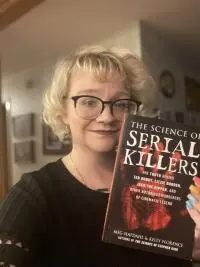 If there are people out there with a passion for writing non-fiction, do you have any sage advice for those who want to get off the fence and just do it? Any hard lessons you’ve learned along the way or the best way to get started?
If there are people out there with a passion for writing non-fiction, do you have any sage advice for those who want to get off the fence and just do it? Any hard lessons you’ve learned along the way or the best way to get started?
K: Thankfully, both Meg and I are research nerds, so the thought of deep diving down a rabbit hole of information sounds like a fun time! Or sitting in a library going through stacks of books is an ideal afternoon whereas a lot of people might feel like it’s too much work.
M: I do consider that a good day! My advice would be to not get overwhelmed. Start with one concept and focus in on that, don’t let yourself get too far off the path. Also, if research starts to get boring, that is a sign it might get boring for your reader too.
Are there any resources you use in order to provide the most comprehensive info for the book series and the podcast?
K: I focus on academic journals and other resources that are trusted.
M: My advice for sources is to not forget fellow humans. We’ve interviewed such fascinating people, and while paper research is fun, it’s speaking to others that has really helped me learn and open my mind to other perspectives.
Any upcoming books or projects you can talk about?
K: Our next book, out in 2022, will be The Science of Witchcraft.
M: We’re so excited for that one! And we have some other projects in the works so follow along…
Lastly, where can people find you online?
K: We are at HorrorRewind.com as well as our own websites: kellyflorence.com and meghafdahl.com.
M: And you can find us on all other social media under our names and horror rewind. We’re even on TikTok! (Don’t tell our kids)
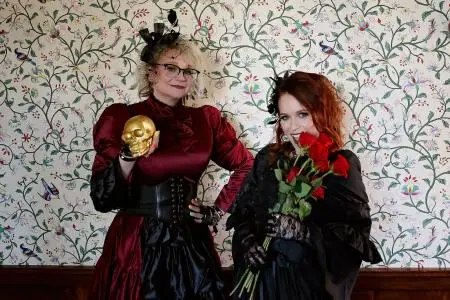
Get The Science of Serial Killers at Bookshop or Amazon
Get The Science Women in Horror of at Bookshop or Amazon
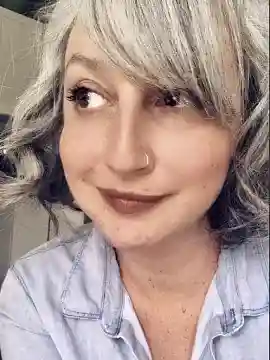
About the author
Sadie Hartmann, “Mother Horror” reviews horror fiction for Cemetery Dance Online and Scream Magazine. She is a co-owner of a curated, horror fiction book subscription company called Night Worms. She lives in the Pacific Northwest with her husband, kids and Frenchie.
